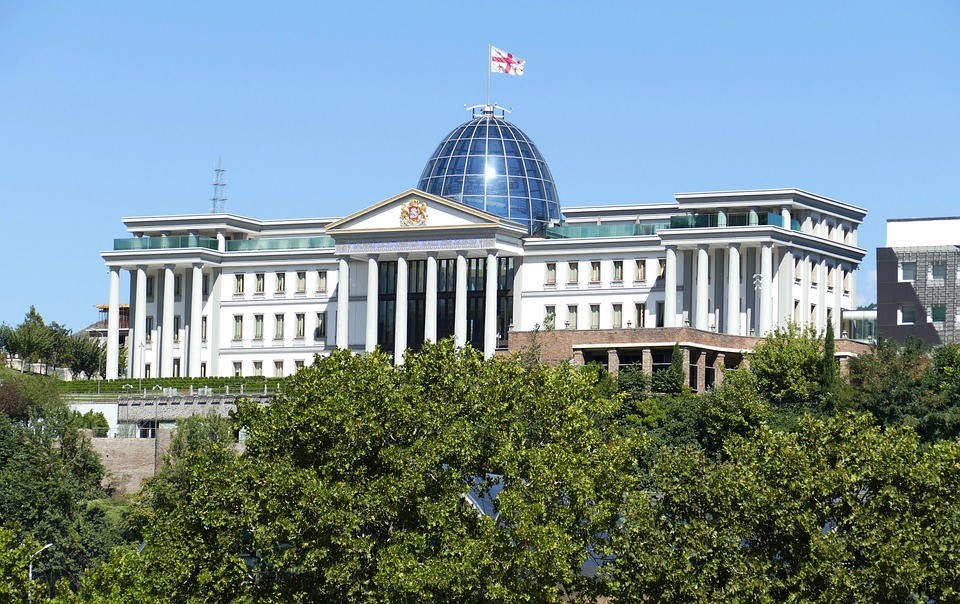Mention Georgia and probably the first place that comes to mind is a US state. There is, however, a small but important country named Georgia located 6,322 miles to the east of the city of Atlanta. It sits on the northeastern shore of the Black Sea and shares a border with Russia to its north. Today it also is at the intersection of great power politics.
Before Russia’s February invasion of Ukraine not many took notice of Georgia. One foreign capital that did, however, was Beijing. In 2017 China signed a Free Trade Agreement with the country as part of its Belt and Road Initiative (BRI) to develop trade routes into the west. Over the last few years China has developed close trade contacts with Georgia and the South Caucasus countries and has invested extensively in the region. Cooperation between Georgia and China stands out due to the size of the BRI investments and growth in bilateral trade over the last five years. China is now Georgia’s largest trade partner surpassing Russia. In 2021 China bought US$598.6 million of Georgia’s products, which accounted for 18.2% of the country’s total exports.
Anti-transit sanctions hitting Russia this year are serving as a boom to Georgia’s economy. The ban on overland cargo transit through Russian territory means Georgia is one of the only land corridors the European Union (EU) can use to reach the Central Asian states and China. Georgia also provides Europe access to Azerbaijan’s natural resources which, without them, the EU would be severely constrained. This summer Baku and Brussels signed an agreement doubling gas supplies to the EU through the Trans-Anatolian Natural (TANAP) and Trans Adriatic (TAP) gas pipelines, according to a July Kommersant article. Even Ukraine this week found a way to increase pressure on Moscow, when it called for the return of parts of Georgia under occupation by Russian troops.
The Russian Foreign Ministry decried Ukraine’s recent call to open a second front in Georgia to liberate Russian-held areas of Abkhazia and South Ossetia saying it is an unwarranted provocation. “While Western sanctions have effectively fenced off Russia’s important international transit corridors, the authorities of Georgia’s breakaway region, Abkhazia, will most likely try to maximize the territory’s own transit potential as a key source of revenue,” according to a Jamestown Foundation article. It points out that the working group created by the “presidential” administration of Abkhazia proposed to “unilaterally remove all restrictions” on the passage and transit of goods across the administrative border with Georgia along the Inguri River.
The ban was introduced in 2008 after the Russo-Georgian War, which led to the on-going Russian occupation of Abkhazia. Tbilisi officials are anxious to reactivate the Trans-Caspian International Transport Route (or “Middle Corridor”). The Caucasus Watch reported this summer that Georgian Prime Minister Irakli Gharibashvili traveled to Uzbekistan, Turkmenistan, and Kazakhstan to raise the issue and sign an agreement to simplify customs transit procedures and jointly manage them. Zaal Anjaparidze, writing for Jamestown Foundation, points out that “Amid the changing realities in the region, cargo turnover in the Georgian corridor has increased by one million tons” this past year, including an increase in both land and sea freight, as well as container cargo turnover.
Political squabbles have held up development of the Georgian port at Anaklia. Other parts of the country’s transport infrastructure also need significant improvements to be able to cope with increased cargo turnover. Some Georgian politicians claim that this initiative is part of the joint Russian-Abkhaz scheme aimed at oblique recognition of Abkhazia’s independence and the attempt to circumvent anti-Russian sanctions by the uncontrolled flow of goods, says Andjaparidze. In Beijing, the Chinese leadership is carefully watching developments in the region as the reorientation of transport and energy corridors from Russia to Georgian territory holds significant opportunities in geopolitical and economic terms although it also carries an elevated level of risk should China become too active in the country.
Russia currently occupies about 22 percent of Georgian territory, including more than a 656-yard section of the strategic Baku-Supsa oil pipeline. According to Andjaparidze, the danger is that a greater part of the pipeline will be in the occupation zone, should Russia continue to move the “border” with breakaway South Ossetia deeper into Georgian territory. Right now both Russia and China are in a watch-and-see mode concerning further economic involvement in Georgia. The Ukraine war’s outcome will no doubt have a major effect on the potential of Georgia’s new transit perspectives as it plays both sides against the Georgian middle.
Daria Novak served in the U.S. State Dept.
